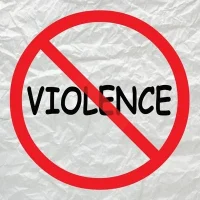Deadline: 25-Feb-22
The AIDS Foundation South Africa (AFSA) is inviting interested non-profit organisations, organisations, and government departments, experienced in the modules listed under “Provision of Sub-Recipient (SR) Services to Implement Human Rights and Advocacy (HRA) Programme in support of HIV Prevention Programmes for Adolescent & Young People (AYP) AND Sex Workers (SW), Global Fund (GF) Grant: Apr 2022 – Mar 2025”.
The GF has recognized access to affordable and quality treatment for HIV, STIs, and TB that is free of stigma and discrimination for Key Vulnerable Populations (KVPs) as a priority in its funding. It has introduced Programmes to Reduce Human Rights Related Barriers to HIV Services as a new module in this funding period.
Goals
The goal of the advocacy strategy is to strengthen the capacity of community-based organisation communities to advocate for improved effectiveness of health, social and justice services for AGYW, KP, PLHIV and PTB, through addressing the barriers to access to services. This includes advocating for improvement in the following areas:
- Advocacy for greater participation and involvement of the key and vulnerable population in planning, implementation, and monitoring of global fund grant programme modules at the district level. Policy implementers need to ensure meaningful participation of the key and vulnerable population in the District AIDS Councils and in the implementation of the district implementation plan (DIP’s) and provincial implementation plan (PIP) and sectorial plans.
- Advocacy for improved access to comprehensive health services for key and vulnerable populations by addressing bottlenecks and advocacy issues identified by communities.
- Advocacy for greater resource allocation for capacity building of the key and vulnerable population. Key and vulnerable populations should meaningfully participate and monitor the budgetary processes particularly on commitments that are made for them.
- Addressing gender inequality and stigma and discrimination as a cross cutting issue through all advocacies
Objectives
- Strengthened Organizing by Civil Society: Community level mobilization and organizing by civil society will facilitate for a structured and active participation of HIV-TB key and vulnerable populations on issues that directly affect the.
- Evidence-based advocacy: The Advocacy interventions will be based on the collection of systematic evidence on the availability, accessibility, acceptability, quality of services including issues related to gender inequality and stigma and discrimination of key and vulnerable populations. Implementing organisations will collaborate with SRs documenting violations of human rights.
- Synergy and partnerships: The implementation of this strategy relies on collaboration between communities, PRs, SRs, CSF, and all other relevant stakeholders, including DoH, DCAs and PCAs. Strengthening of partnerships and formalisation of existing ones will be pursued at all levels. In addition, synergic relationships amongst key and vulnerable population sectors will be maximised.
- GIPA /MIPA Principle: The GIPA /MIPA Principle or the ‘Greater/Meaningful Involvement of People living with HIV’ is a principle that aims to realise the rights and responsibilities of people living with HIV, including their right to participation in decision-making processes that affect their lives.
Eligibility Criteria
- The minimum requirements to serve as an SR include:
- Sound governance frameworks, demonstrated by, inter alia, by a diversified board and management team, and at least one year audited financial statements.
- Appropriate staffing in key areas (programme and financial management, human resources, programme implementation and management, monitoring and evaluation and procurement management).
- Experience of managing grants and SSRs, where applicable.
- A track record of effective and efficient implementation of similar activities, preferably in the target district.
- A sound system of management and financial controls.
- A sound monitoring and evaluation system, tools, and procedures amongst other requirements.
- A potential SR must have proven ability to manage programmes in the specific modules in the RFA and must also be capable of performing the functions of an SR which includes the following:
- Effective leadership and governance structures
- Legal status such as voluntary association, trust, non-profit company (NPC) etc. to enter into contracts.
- If submitting as a consortium, then documents corresponding to the consortium must be submitted (including joint B-BBEE certificate). If submitting as a partnership that is not legally constituted, then one organisation must submit as the applicant (SR) and then specify the other partner/s as its subsub-recipients (SSRs). In this case, AFSA will contract and liaise with the SR and the SR will contract and liaise with its SSRs.
- Have a properly constituted board that provides oversight over organisational matters.
- Effective organizational leadership using transparent decision-making processes.
- Adequate skilled and experienced staff to manage implementation of the modules, including procurement, monitoring and evaluation, and finance.
- Knowledge about and ability to communicate and network with relevant district stakeholders and structures such as government departments, local and district AIDS Councils.
- Appropriate internal control systems, including policies and procedures, to prevent and detect fraud or misuse of resources.
- Financial management system
- Accounting system that can correctly record all transactions and balances by source of funds with clear references to budgets and work plans.
- Ability to monitor actual spending in comparison to budgets and work plans.
- Ability to manage disbursement of funds to SSRs and suppliers in a timely, transparent, and accountable manner.
- Ability to produce timely and accurate financial reports.
- Monitoring and evaluation
- Monitoring and Evaluation (M&E) system for routine monitoring of activities/interventions.
- Mechanisms and tools to collect and analyse data, and report on programme performance.
- Ability to produce timely and accurate programmatic reports.
- Effective leadership and governance structures
For more information, visit https://bit.ly/34v8rhI









































